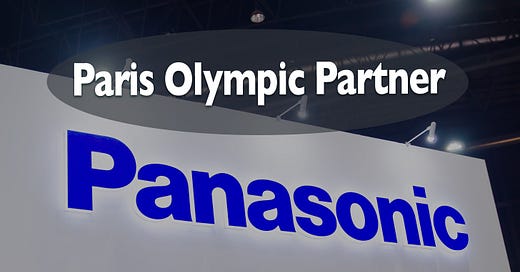Panasonic & The Olympics: The End of a Multidecade Partnership?
Panasonic is the leading supplier of the on-site video screens, audio systems, and top-notch digital broadcast equipment.
Highlights
Panasonic will continue to provide top-notch technological support at the Olympics.
Initiatives like the IOC Young Leaders Programme will empower young athletes to create positive change in their communities.
Partnerships with athletes like Katie Ledecky and Hannah Cockroft show Panasonic's commitment to sustainability and inclusivity.
With billi…
Keep reading with a 7-day free trial
Subscribe to 24Hour Journal to keep reading this post and get 7 days of free access to the full post archives.




